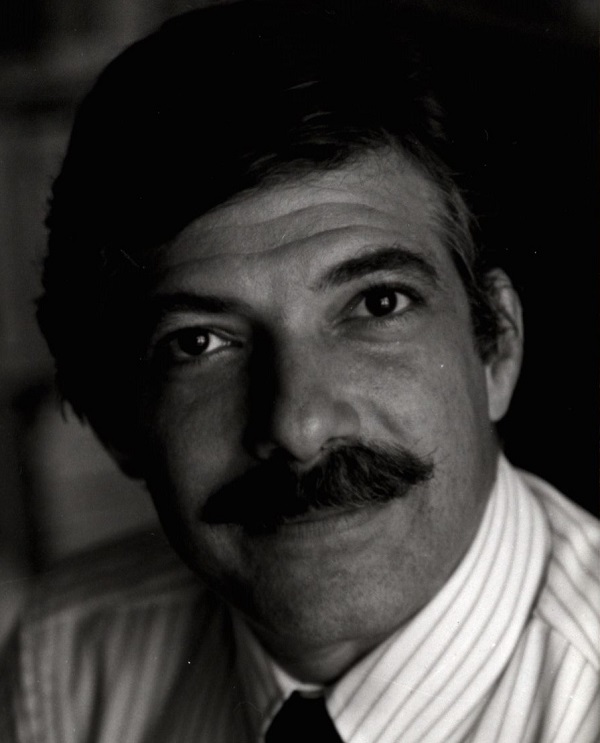
Courtesy Cushing Memorial Library and Archives, Texas A&M University
Arnold P. Krammer, professor emeritus at Texas A&M University, died on September 24, 2018, at the age of 77 in Bryan, Texas. He was born in Chicago on August 15, 1941, to David and Eva (Vas) Krammer, both Jewish immigrants from Hungary. His father had come over in the 1920s with his family, but his mother arrived just in the nick of time, in April 1939. Krammer lost relatives in the Holocaust, and that era would dominate his scholarship and teaching throughout his career.
Krammer received his BS, MA, and PhD degrees from the University of Wisconsin–Madison, earning his doctorate in 1970. He was mentored by two distinguished scholars in exile: Theodore Hamerow advised his master’s degree, and George Mosse his PhD. After four years teaching at Rockford College (now University) in Illinois, Krammer joined the faculty of Texas A&M University as associate professor of history in 1974 and earned promotion to the rank of professor in 1979. Over a career that spanned 41 years at Texas A&M, he was awarded Senior Fulbright Lectureships at the German universities of Tübingen (1992–93) and Friedrich Schiller Jena (2002–03), and was twice a visiting lecturer at Rice University.
The books he authored or edited include The Forgotten Friendship: Israel and the Soviet Bloc, 1947–1953 (1975); Nazi Prisoners of War in America (1979); Hitler’s Last Soldier in America, co-authored with Georg Gaertner (1985); and Undue Process: The Untold Story of America’s German Enemy Alien Internees (1997). He is best known for his work on the hundreds of thousands of German POWs held in the United States during the Second World War. He wrote with great sensitivity about life in the camps and relations between German prisoners and ordinary Americans in rural communities across the country. He generously mentored academic and amateur researchers who wanted to explore the topic further, and spoke widely to community organizations and the media.
At Texas A&M, Krammer served on 26 MA committees, chairing 7, as well as 37 doctoral committees, 8 of them as dissertation adviser. Asked for their memories of working with him, Krammer’s graduate students recalled his compassion, dedication to improving graduate-student life, and eagerness to help them navigate the complexities of the profession.
Krammer also had an impact on thousands of students as a teacher of undergraduates. His obituary elicited a response from a student who had graduated in 1976, and who still remembered Krammer as “engaging, enthusiastic, and one of the best professors I experienced in my pursuit of a history degree.” Krammer earned four Distinguished Achievement Awards in Teaching, two at the university level and two more in the College of Liberal Arts. His upper-level courses—such as Germany since 1815, Nazi Germany, and the History of the Holocaust—filled quickly. He went to great lengths to expose his students to eyewitnesses of the events he taught, among them concentration camp survivors. Krammer also led Study Abroad student groups to Germany, Italy, Normandy, and Poland. Assigned to the US survey when he arrived at A&M, Krammer continued teaching the course throughout his career. His last lecture, to a class of 300, was attended not only by a number of colleagues and friends, but also by people from the local newspaper and TV station. It ended with a standing ovation.
Krammer is survived by his wife of 27 years, Jan Smith Krammer, his partner in many European excursions; two sons, Adam and Doug; and three grandchildren.
Walter D. Kamphoefner
Texas A&M University
Adam R. Seipp
Texas A&M University
Tags: In Memoriam Europe North America

This work is licensed under a Creative Commons Attribution-NonCommercial-NoDerivatives 4.0 International License. Attribution must provide author name, article title, Perspectives on History, date of publication, and a link to this page. This license applies only to the article, not to text or images used here by permission.
The American Historical Association welcomes comments in the discussion area below, at AHA Communities, and in letters to the editor. Please read our commenting and letters policy before submitting.
Comment
Please read our commenting and letters policy before submitting.






